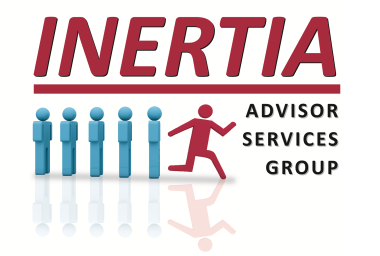Health, Wealth & Fiduciary Responsibility
"How can financial advisors possibly fulfill their fiduciary responsibility to clients today without an intimate knowledge of the health aspects impacting both their physical and financial lives?"
Dr. Joseph Coughlin, Executive Director,
Massachusetts Institute of Technology - AgeLab
A Silver Tsunami will soon crest on the American economy, and that means the advisory community can no longer treat Long-Term Care (LTC) Planning as optional. Too often, what passes for "planning" is nothing more than earmarking assets to cover potential costs. But planning for care is not the same as paying for care. Dollars alone don't coordinate care, protect family members, or manage the emotional and logistical fallout when health declines.
This is where fiduciary duty becomes non-negotiable. In its plainest meaning, a fiduciary is entrusted to act in the best interests of another. That trust cannot be fulfilled by focusing only on portfolios, tax efficiency, or retirement income projections while ignoring the health realities that drive outcomes. Those not helping clients anticipate and prepare for future care needs are leaving them exposed — financially, emotionally, and legally. Recognizing the inseparable link between health and wealth is only the first step, as fulfilling fiduciary responsibility means building strategies that plan for care, not just pay for it — strategies that quantify risks, identify funding sources, and preserve both assets and dignity. Anything less is incomplete advice.
Understanding the Fiduciary Responsibility
The courts have reinforced this. In Tibble v. Edison International (2015), the U.S. Supreme Court held that fiduciaries have a continuing duty to monitor investments and remove imprudent options. The lesson is broader than mutual funds — fiduciaries cannot ignore material risks. Which raises the uncomfortable reality: until an American qualifies for Medicaid, every dollar they have is — by default — allocated to Healthcare In Retirement. PERIOD. FACT. The logic cannot be broken. You can't even measure healthcare risk without first acknowledging that all client assets are already allocated to potential future healthcare expenses.
As such, genuine fiduciary responsibility means (1) recognizing the difference between planning for care and simply paying for care, (2) without a strategy, every American has one big healthcare fund waiting to be spent, and (3) any "fiduciary" who ignores that reality is a fiduciary in name only.
The Convergence of Health & Wealth
Health and wealth are not parallel tracks in a client's life — they are the same road. When health declines and care that's excluded by Medicare, health insurance, a Medigap plan, etc., is needed, wealth is the first casualty. That indisputable linkage between health and wealth demands more from the fiduciary duty than just acknowledging the connection. It requires planning for it. Without a strategy, the convergence of health and wealth becomes a collision, and clients are left to manage the crisis on their own, with the physical and emotional cost to families that can't be measured after the financial plan's destruction.
And let's be clear: telling a client they can "self-fund" is nothing less than abandonment of the fiduciary duty the advisory community screams is so essential. It shifts the entire burden back to the client and their family to figure out all of the planning that should have been done before a single check is ever written for care. That's not fiduciary guidance — that's abdication dressed up as advice.
Maintaining a fiduciary responsibility requires an advisor to have a detailed understanding of a client's health and how those concerns could impact their physical, emotional, and financial well-being. In simple terms, the quote at the top of the page or the link between Medicare and Social Security are reminders that health and wealth are inseparable, and addressing one without the other leads to inadequate financial advice, poor decision-making, and clients facing unnecessary future chaos.
Throughout the advisor community, fiduciaries must provide comprehensive guidance that recognizes the correlation and convergence of health and wealth.
20250923

